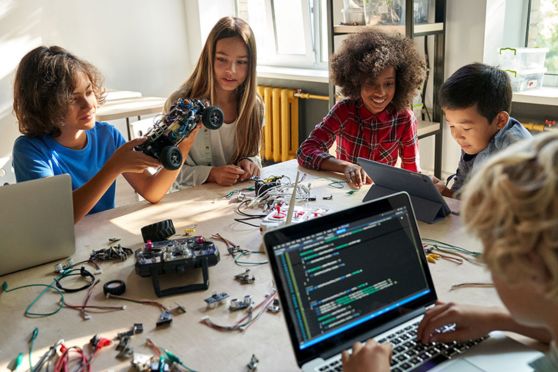AI-powered Chatbots and Virtual Assistants: A new pathway to increase student engagement


Since ancient times, education has been a unique tool for humans to gain access to all the knowledge and information they require to comprehend the world and achieve self-realization and well-being. However, since newfangled technologies entered the public spotlight, artificial intelligence (AI), the most popular one, has traversed the education sector. This is where AI, as an umbrella word for technology, has transformed education in India by tackling potential difficulties and boosting creative teaching and learning practices.
Today, in a technologically advanced age, the field of education in India has undergone a dramatic shift. Long gone are the days of straight rows of desks bordering the classroom walls, where students were compelled to learn within four walls. Today, with AI tools, they can learn from anywhere and at any time, as per their pace and speed. And among various new-age tools, AI-powered chatbots and virtual assistants have emerged as potent tools, altering the way students engage with their academics. So, let’s delve into the ways in which AI-powered chatbots and virtual assistants are being used to increase student engagement.
There is no denying the fact that India, being the most populous country, boasts a diverse educational landscape. Traditional education methods have struggled to keep pace with the nation's burgeoning population and growing educational aspirations. Thus, to bridge the gap, AI-powered chatbots and virtual assistants have received a lot of attention for their capacity to boost student engagement.
On the one hand, chatbots are computer programs that use artificial intelligence (AI) and natural language processing (NLP) technology to mimic human communication and give automated educational assistance to students and educators. Educational chatbots can answer questions, provide study materials and comments, and even provide personalized coaching. Virtual assistants, on the other hand, are gadgets that can execute a range of tasks using voice instructions. These AI tools in education perform administrative chores such as course enrollment and scheduling, freeing up time for academics to focus on research and teaching. They also give students immediate access to information about their classes, assignments, and grades, increasing student engagement to a great extent.
Here, let's delve into the ways in which AI-powered chatbots and virtual assistants can be used to increase student engagement:
24/7 Availability: AI chatbots and virtual assistants are available 24 hours a day, seven days a week, to provide students with immediate support. These AI-powered tools deliver fast solutions to students who have questions about a certain topic, need help with homework, or need clarification on a concept. This accessibility means that students can seek assistance anytime they require it, establishing a sense of support and involvement in their studies.
Personalized Learning Pathways: AI-powered systems analyze each student's learning patterns and performance data to create personalized learning pathways. They can use this information to build personalized learning paths for specific students. These pathways entail customized assignments, recommended study materials, and adaptive exams tailored to each student's strengths and limitations. Thus, by catering to the unique needs of students, AI-powered assistants make learning more engaging and relevant, as students feel their education is tailored specifically to them.
Gamification and Interactive Learning: In today’s ever-changing environment, students often get tired of monotonous material. Thus, to kill the boredom, AI chatbots and virtual assistants have emerged as a helpful hand in the learning process, adding gamification components. With technology, students can design interactive quizzes, games, and simulations to make learning more enjoyable and engaging. In fact, gamification not only encourages students to actively participate but also rewards their progress, which can increase their excitement for learning. Interactive aspects also motivate students to dig deeper into subjects, which leads to better comprehension and retention.
As a result, in India, where education has long been a pillar of social progress, AI-powered chatbots and virtual assistants have emerged as key players in transforming the learning landscape, particularly when it comes to enhancing student engagement.